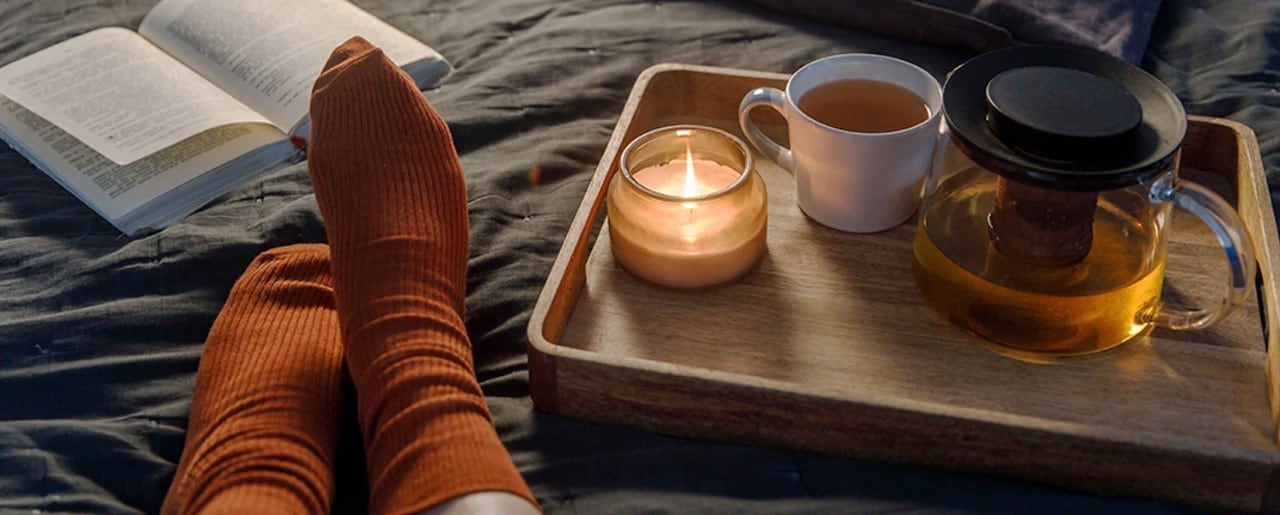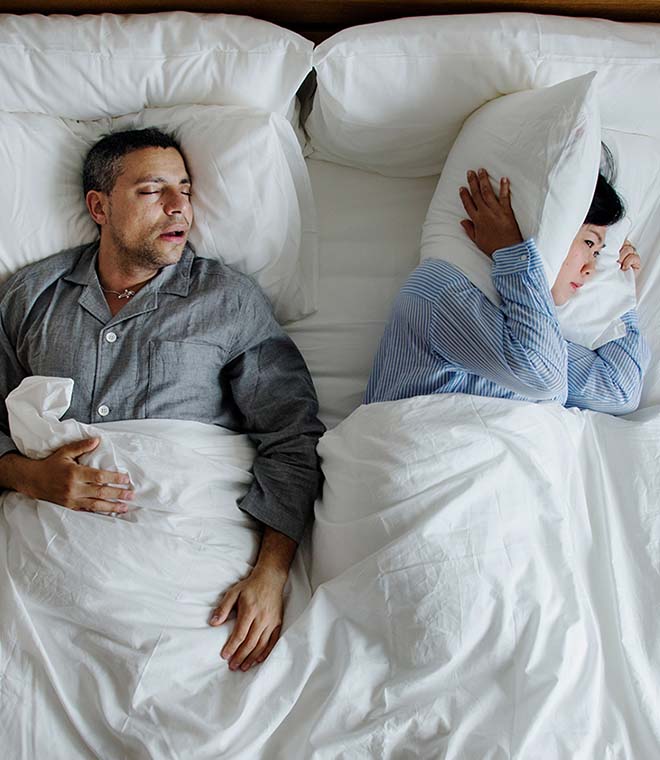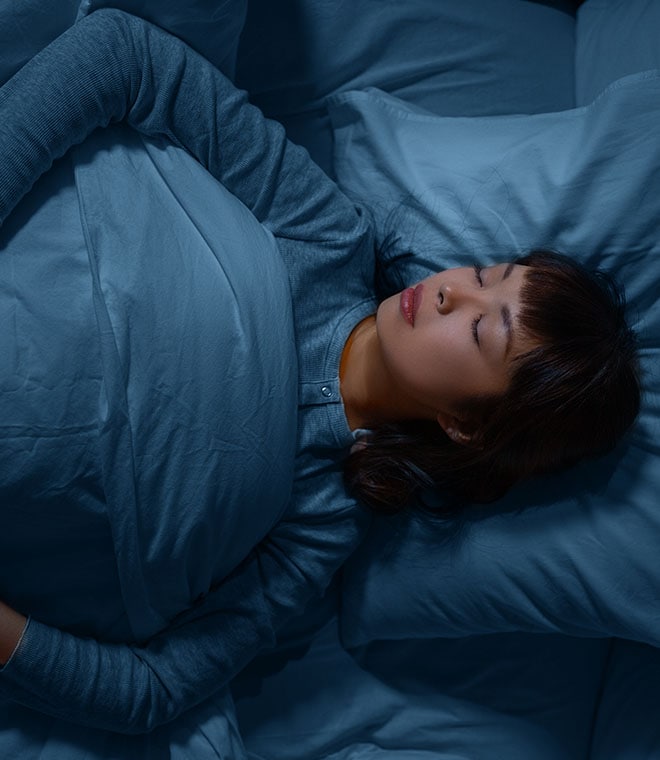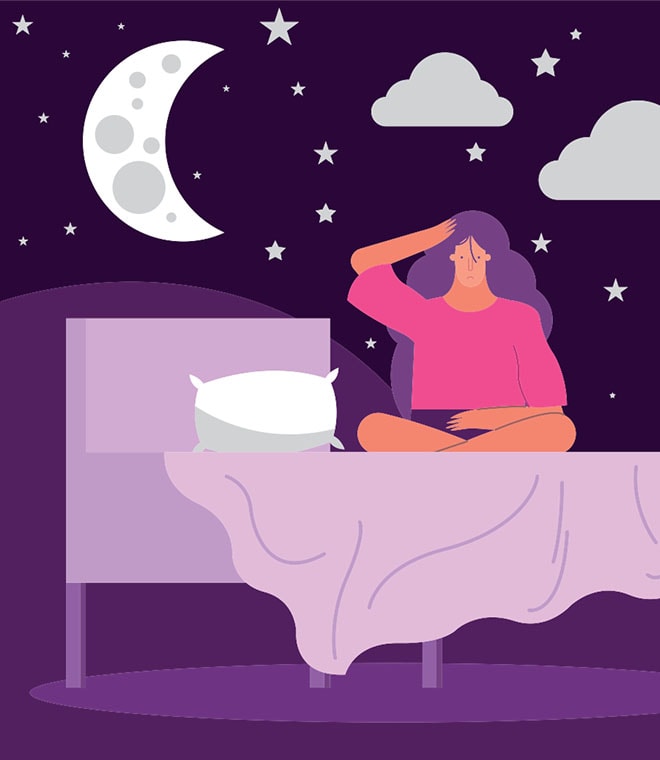Wellness
Sleep aids and natural remedies for insomnia
By Nancy Kupka, PhD, RN Sep 05, 2022 • 7 min
Sometimes you might have trouble falling or staying asleep.
Maybe you've tried everything you've heard about to improve your sleep habits. You shut off screens 30 minutes before bedtime and avoid nicotine, caffeine and alcohol in the hours before going to sleep. Your bedroom is dark and uncluttered. You've taken warm baths, sipped hot tea and tried yoga, but you still can't sleep.
If you’re still having trouble sleeping, it may be time to see your healthcare provider to explore possible solutions. Because multiple body systems control your sleep, there are multiple approaches to managing insomnia, which by definition is the inability to fall or stay asleep. There is a wide variety of insomnia medications and remedies available, including behavioral techniques, over-the-counter (OTC) medication for sleep and prescription medications for sleep. The best options for you depend on several factors, including your age, any illnesses you may have, the type of insomnia being treated and other medications you take.
Short-term insomnia
Around 30% of adults report short-term problems with falling or staying asleep. Short-term insomnia may have many different causes, including psychological and environmental factors. Cognitive behavioral therapy for insomnia (CBT-I) is recommended to try first for better sleep. This is a treatment consisting of multiple components intended to change behavior and thoughts surrounding sleep. For some people with occasional trouble sleeping, an OTC medication for sleep might also do the trick. Natural remedies and supplements for sleep are also available.
- OTC sleep aids are products that often include diphenhydramine or doxylamine succinate in their list of active ingredients. Diphenhydramine is found in Benadryl and any "PM" product, like Tylenol PM or Advil PM. Doxylamine succinate is found in Unisom and other OTC sleep aids. Both diphenhydramine and doxylamine succinate are antihistamines, which are used for allergies. These medications are not recommended for long-term use and may leave you feeling very drowsy the next day, or you may experience dry mouth, blurry vision or bladder problems.
- Natural remedies or supplements intended to help with sleep may contain ingredients such as melatonin, valerian root, magnesium, chamomile, lavender, passionflower, L-tryptophan, ginkgo biloba and L-theanine. There is a commonly held belief that natural remedies for sleep are safe. While many of them may be, they still have side effects and can interact with other medicines you take. It also isn't understood how many of these products work, and their effectiveness results in studies may be lacking. These sleep aids may also leave you with daytime drowsiness, headaches or upset stomach. You should consult with your healthcare provider or pharmacist before taking any new medication or supplement.
Chronic insomnia
Chronic insomnia is disrupted sleep that occurs at least three nights per week and lasts for at least three months. If you have chronic insomnia, you should consult with a healthcare provider. They'll review your sleep problems and check for underlying health issues that may be affecting your sleep. Certain medications can also cause insomnia as a side effect. Ask your pharmacist to review your medications for any possible side effect of insomnia. If medications are contributing to insomnia, you can talk with your provider about changing to a different medication.
Prescription sleep aids are often sedatives and are prescribed based on the type of sleep problems you are having.
- Sleep onset insomnia means you can't fall asleep. Your provider may prescribe a short-acting medication to help you fall asleep without being tired the next day. Examples of these medications include zaleplon, zolpidem (Ambien), triazolam (Halcion), ramelteon (Rozerem) and lorazepam (Ativan).
- Sleep maintenance insomnia is when you can fall asleep but have difficulty staying asleep or you wake up too early. Your provider may prescribe a longer-acting medication, including extended-release or sublingual (under the tongue) medication, such as zolpidem (Ambien), eszopiclone (Lunesta), suvorexant (Belsomra) or temazepam (Restoril). These medications may increase the risk for drowsiness the next day. Certain antidepressants may also be prescribed for sleep maintenance.
Things to keep in mind
- Prescription sleep aids, OTC sleep aids and natural remedies for sleep are all medications. They can each have side effects and may interact with other medications you take. Check with your pharmacist or provider before taking any products to help you sleep.
- You should not take sleep aids in the middle of the night. Take them about 30 minutes before your desired bedtime to minimize the next day drowsiness and "hangover" effect. Don't take them if you can only stay in bed for four hours or less.
- In addition to taking sleep aids, continue to follow recommendations for good sleeping habits. These include going to bed at the same time each night, avoiding caffeine, nicotine and alcohol before bed (the time required varies based on your response to caffeine and the number of drinks you consume), and discontinuing screen time an hour before bed.
- You should see your provider every six months so they can evaluate if you still need the sleep aid. This can help you avoid the risk of dependency and minimize side effects.
Clinically reviewed and updated by Julie McDaniel, MSN, RN, CRNI, September 2022.
Sources:
- https://www.sleepassociation.org/about-sleep/how-to-fall-asleep/
- https://www.uptodate.com/contents/cognitive-behavioral-therapy-for-insomnia-in-adults
- https://pubmed.ncbi.nlm.nih.gov/26543025/
- https://www.uptodate.com/contents/overview-of-the-treatment-of-insomnia-in-adults#PATIENT_INFORMATION
- https://www.nhlbi.nih.gov/health/insomnia
- https://www.sleepfoundation.org/insomnia
- https://www.sleepassociation.org/about-sleep/sleep-statistics/
- https://www.ncbi.nlm.nih.gov/pmc/articles/PMC8116439/
- https://www.sleepfoundation.org/sleep-aids/natural-sleep-aids
- https://www.nccih.nih.gov/health/chamomile
- https://www.nccih.nih.gov/health/passionflower
- https://medlineplus.gov/ency/patientinstructions/000758.htm
- https://familydoctor.org/condition/insomnia/



